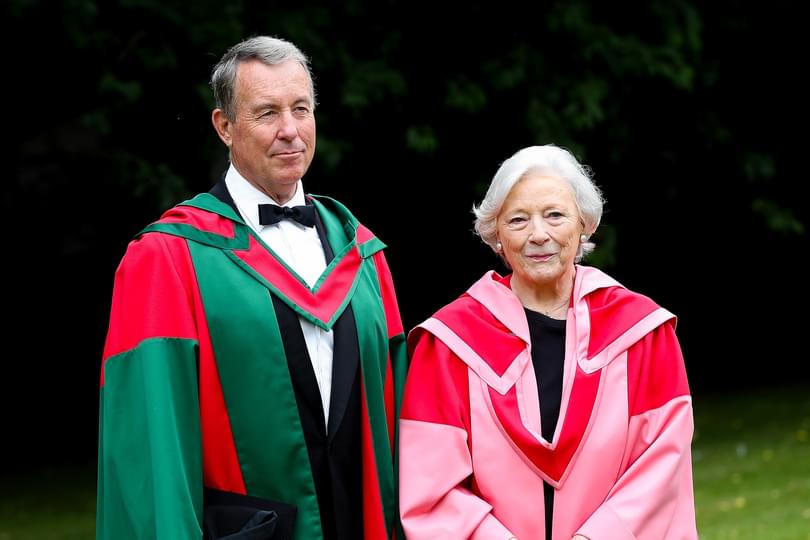
Professor Terry Dwyer, Oxford Martin Senior Fellow, and Executive Director of The George Institute for Global Health, UK, has been awarded an honorary doctorate by Trinity College Dublin for his work on Sudden Infant Death Syndrome.
Professor Dwyer, who is also a Professor of Epidemiology at the University of Oxford, was awarded a Doctor in Science. His pioneering research carried out on the positioning of infants during sleep led to the revision of the international recommendations on Sudden Infant Death Syndrome, with a consequent significant reduction in cot deaths.
The Public Orator, Professor Anna Chahoud said “That mothers and fathers may be spared at least one kind of mournful loss is now more than a promise: it is the tangible life-giving effect of our first candidate’s contribution to medical research. Terrence Dwyer has devoted his life to infant and child health”.
On reception of the award, Terry commented "It is of course a great honour to receive an honorary degree from one of the world’s leading universities. It also is a helpful reminder to those having babies that one important thing they can do to ensure the health of an infant is to place it on its back to sleep. This type of award recognises the importance of a field of research as well as helping an individual and in this case highlights just how important epidemiology has been in finding preventable causes of major human diseases."
Professor Dwyer is currently leading The International Childhood Cancer Cohort Consortium, which seeks to obtain the first prospective data - both from questionnaires and bio specimens - on the potential causes of childhood cancer. The consortium intends to pool data from 1 million mothers and babies to provide the necessary power to examine exposure-disease associations, and has already compiled data on approximately 400,000 subjects.
Watch a video of Terry Dwyer receiving his honorary degree